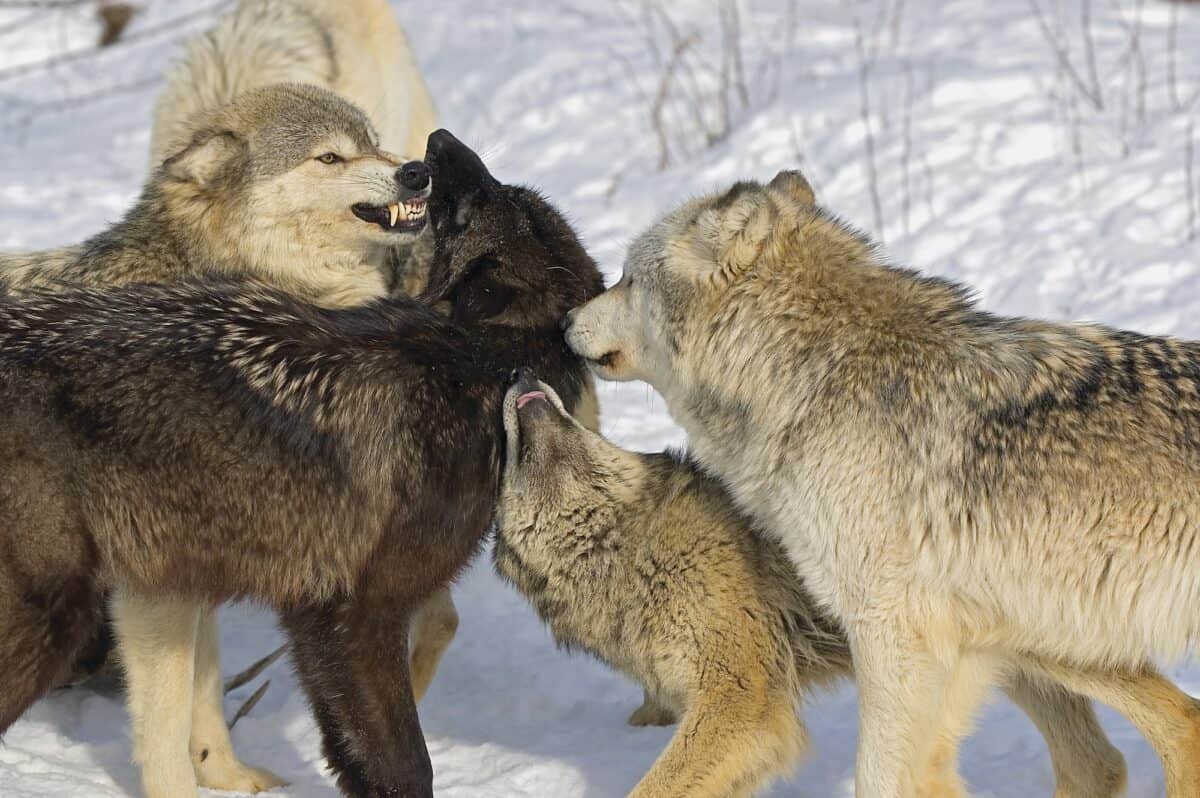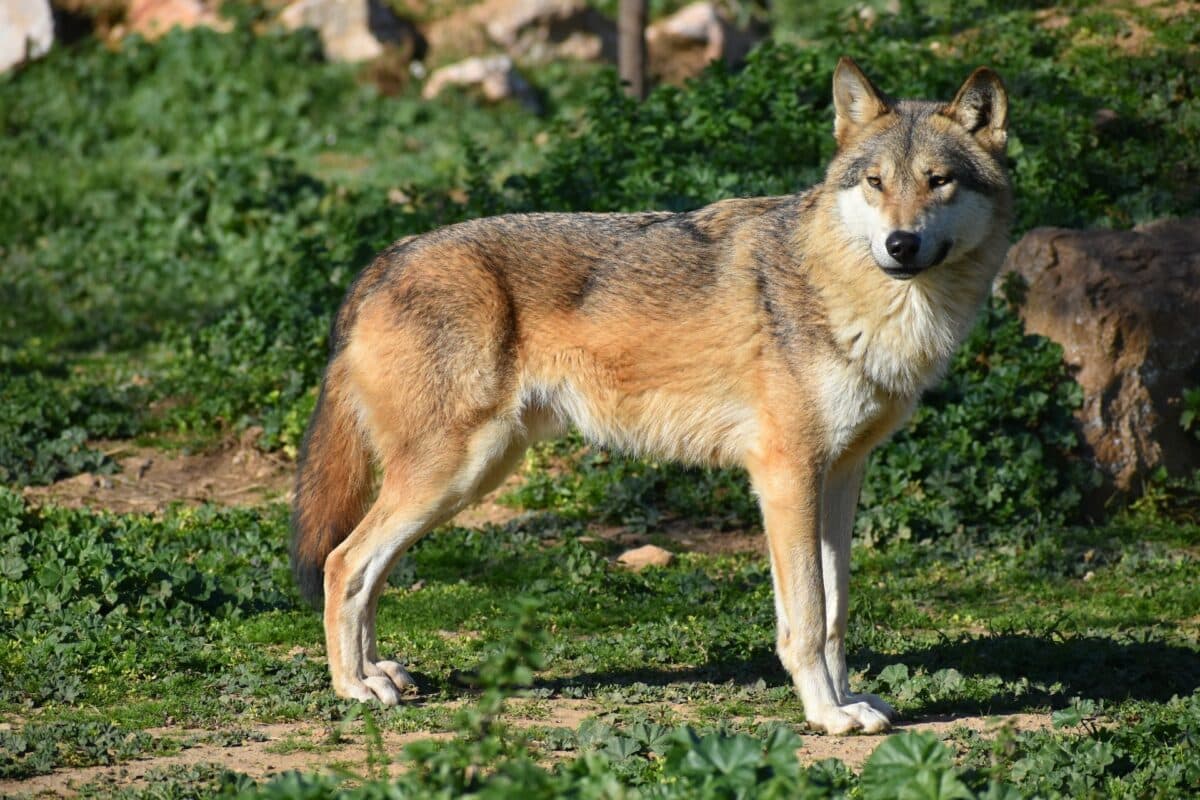Wolves, the majestic ancestors of our domestic dogs, are often associated with cunning and ferocity. While their intelligence has been acknowledged in cultural lore for centuries, scientific studies continue to reveal just how remarkable their cognitive abilities truly are. These animals are not just intelligent hunters and survivors; they are also complex social creatures with sophisticated problem-solving skills. This article delves into ten fascinating ways that wolves are smarter than we might have imagined.
Social Intelligence

Wolves are known for their tightly knit social structures. Living in packs that can range from a few individuals to a dozen, they exhibit an intricate social order. Each pack has a clear hierarchy typically led by an alpha pair, with lesser ranks filled by beta wolves and omegas. This complex social structure requires effective communication, cooperation, and negotiation among pack members, reflecting a high degree of social intelligence.
In-Depth Communication

Wolves communicate using a surprisingly rich array of vocalizations, body language, and facial expressions. Each howl serves a specific purpose, from signaling territory to coordinating group movements or finding separated pack members. Recent studies have shown that wolves adjust their calls depending on the circumstances, indicating an ability to convey context-specific information efficiently.
Cooperative Hunting Strategies

Cooperative hunting is a testament to wolves’ intelligence and teamwork. Wolves hunt large prey such as elk and deer, requiring elaborate strategies and split-second decision-making. Researchers have observed wolves executing sophisticated hunting techniques, such as flanking, ambushing, and using the landscape to their advantage, demonstrating not only intelligence but also strategic planning and cooperation.
Problem-Solving Skills

Wolves exhibit significant problem-solving abilities, often outperforming even domesticated dogs in experiments involving intelligence tests and puzzles. When faced with challenges in the wild, such as difficult terrain or defensive prey, wolves adapt quickly, displaying a level of adaptability and foresight that points to advanced cognitive capabilities.
Tool Use and Manipulation

While traditionally associated with primates and some birds, certain packs of wolves have been observed using tools – a rare skill in the animal kingdom. In one study, researchers documented wolves using sticks to probe for food hidden in crevices, indicating a level of innovation and tool-use once considered exclusive to apes and corvids.
Memory and Recall

Memory plays a crucial role in a wolf’s ability to navigate their territory, hunt successfully, and remember social ties within the pack. Wolves possess an excellent memory, demonstrated by their ability to recall and return to distant locations or identify individual pack members and non-pack members even after long periods.
Sensitivity to Human Cues

While not domesticated, wolves have shown an uncanny ability to interpret human gestures and cues, an ability they share with domestic dogs. Observational studies have demonstrated that wolves can follow human pointing gestures, a task that suggests a degree of cognitive empathy and an ability to understand intentions resembling that found in pets.
Adaptive Behavioral Responses

Wolves are highly adaptable creatures, exhibiting a remarkable capacity for adjusting their hunting practices and social behaviors to new environments. Whether adapting to changes in prey availability or responding to human encroachment, wolves apply their cognitive flexibility to survive and thrive in diverse conditions worldwide.
Intricate Parenting and Teaching Techniques

Wolves invest heavily in their offspring, employing teaching methods to ensure pup survival. Adult wolves demonstrate hunting techniques, leadership behaviors, and social customs, allowing younger wolves to learn essential skills through observation and practice, emphasizing their role as intelligent, strategic teachers.
Conflict Resolution Skills

Within a wolf pack, disagreements and conflicts are inevitable. Wolves exhibit sophisticated conflict resolution skills, often employing non-aggressive strategies to resolve issues. They use rituals, such as postures and gestures, to defuse tension and resolve disputes without resorting to violence, showcasing an ability to maintain cohesive social bonds through intelligent and calculated behavioral strategies.
Understanding Complex Environmental Dynamics

Finally, wolves show an impressive capacity to understand and react to complex environmental dynamics. Their intelligence is evident in their ability to track seasonal changes, forecast weather events, and plan migratory routes. This understanding not only aids their survival but ensures the pack can effectively coordinate their movements and resource use.
Conclusion:

In conclusion, the intelligence of wolves extends far beyond mere survival instincts. From sophisticated social structures to strategic problem-solving and communication skills, wolves demonstrate a level of cognitive complexity that continues to fascinate researchers and animal enthusiasts alike. As we deepen our understanding of these remarkable creatures, we gain insight into the evolutionary roots of intelligence and the shared traits that unite the animal kingdom.
- 14 Weirdest Looking Animals on Earth - August 15, 2025
- 13 Creatures That Don Not Need Eyes to See - August 15, 2025
- 13 Wild Species That Can Clone Themselves - August 15, 2025

